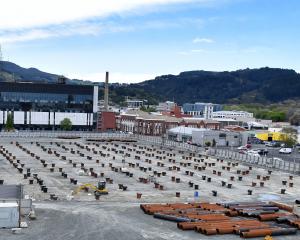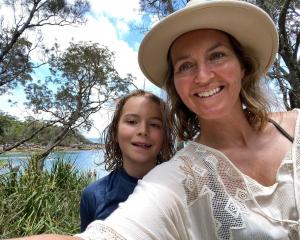As many of us were contemplating the annual agony of New Year's resolutions, an element of confusion crept into conversations between friends, families and those still at work: do we really have any say over whether we get cancer or is it just bad luck?
A paper in the journal Science suggested two-thirds of the incidence of various types of cancer could be blamed on random mutations and not ''unhealthy'' living or heredity.
Before you throw caution to the wind, or disregard decades of research advising a healthy lifestyle to help you minimise the risk of many cancers and diseases, let's take a second look at what the researchers were saying and examine their approach.
The paper reeled across the world under the title, ''The Bad Luck of Cancer'', words actually used by the authors, rather than its scientific title, ''Variation in cancer risk among tissues can be explained by the number of stem cell divisions''.
Those two titles reflect the beast that cancer is; simple and yet all too complex. The devil is always in the detail.
Bert Vogelstein, a leading cancer geneticist at Johns Hopkins University in Baltimore, Maryland, has spent his career asking why people get cancer.
He teamed up with Cristian Tomasetti, an applied mathematician, to investigate the relationship, or correlation, between tissue stem cell divisions and lifetime cancer risk across 31 cancers of the 200 or more that afflict humans.
Adult stem cells are undifferentiated, or ''blank'' cells. They maintain their numbers by cell division and when required produce functional cells to replace dying cells or to repair damage.
We know that cancer is caused by mutations in DNA and that many cancers have a stem cell origin.
With age comes an increasing but finite tally - an inner abacus toting up more and more cell divisions that vary between different organs and tissues.
With that comes an increasing chance of something going wrong; a mutation.
But were all the assumptions in this research, which they claimed demonstrated a 'striking' correlation between the number of stem cell divisions in a particular tissue and lifetime risk for different cancer types, made clear, and was their approach to each cancer type consistent?
Vogelstein and Tomasetti studied only 28 of the more than 200 cancers we know about.
For lung cancer they separated smokers and non-smokers, with liver cancer they looked at data from those with and without hepatitis C virus, and with head and neck cancer with and without papilloma virus.
Yet melanomas were not subdivided into high and low UV exposure, and all skin cells containing melanin were regarded as stem cells, which is debatable.
Breast cancer and prostate cancer were not included in their research, presumably because stem cell division times were not available, or perhaps because different stem cell populations can be involved.
Other factors challenge their findings.
Stem cell division times are notoriously difficult to determine accurately and may vary according to tissue location.
DNA repair mechanisms and immune surveillance further complicate the analysis, and not all cancers originate from the same stem cells, perhaps explaining omission of breast and prostate cancer from their analysis.
In other cancers, like melanoma, the stem cell link is contentious.
People are naturally concerned about cancer; it affects such a high number of us directly or indirectly.
It is one of the reasons why an army of people worldwide have studied it for decades, and have distilled the best advice of how to minimize risk of developing it, and for now, the best ways to treat it.
In general, correlations are not proof of causation, but Vogelstein and Tomasetti's paper may provide useful information for further study.
Meanwhile, early detection of problems and keeping up your positive life choices remain vitally important in the fight against most diseases.
At the Malaghan Institute in Wellington we are focused on finding better treatments for diseases such as cancer, asthma and allergy by researching cell mechanisms, and increasingly immunology; helping the body to mount its own fight back against disease.
Mike Berridge is cancer cell biology group leader from Wellington's Malaghan Institute of Medical Research.











